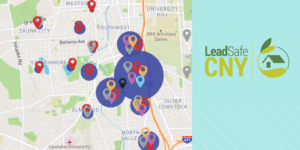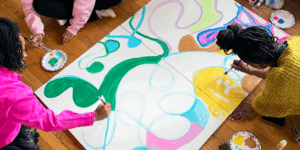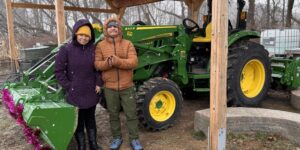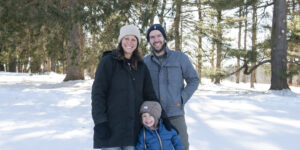Duck pond stories don’t usually include Elvis impersonators, a history-making divorce, and sea salt caramel ice cream, but Webster Pond’s story is complex. Named after one of the first White settlers in the region who befriended members of the Onondaga Nation and then later betrayed them, the pond has outgrown its checkered past and landed on some of the best qualities of a public space: equity, care for the environment and restoring the human spirit. Webster Pond fills a role in society that is, for some, a necessity.
The president of the Friends of Wildlife, Chad Norton, was just 7-years old when his parents took him to Webster Pond for an Elvis impersonator’s concert. Just after the show, Chad immediately approached the pond’s team and offered to volunteer. He was told by the volunteer staff that he was too young, but his parents chose to participate with him to keep him involved.
Norton, who has made it his life mission since 1994 to care for the pond and its bird residents, was born with cerebral palsy and relies on a wheelchair for mobility. So, while some people really do come to feed the ducks once in a while and head to nearby Gannon’s for ice cream, the pond also holds deeper significance for those who value protecting nature and supporting the disabled community.
Webster Pond is home to over 50 domestic waterfowl, which were purchased or donated to the pond. These ducks, geese and osprey can’t fly and, therefore, live at the pond throughout the year. These birds, along with a mute, white swan named Dawn, depend on Chad and the volunteers for daily care and food.
Every day, volunteers are out feeding the birds with 200 pounds of corn. The volunteers come from all over the city to make sure the birds are fed and healthy.
The pond and trails are all accessible, making the pond a welcome outing for aides and advocates whose clients have intellectual and developmental disabilities. Heather Green, who works with Advocates, Inc., took her client to the pond each week. When COVID-19 shut down the park for a couple of months, Heather’s client was crushed. Chad knew how very important their visits were and since they still required volunteer feeders, Heather’s client was brought on as a bird feeder, news that brought her to tears.
“We feed the ducks but really the pond
feeds the community.”
Heather Green
“We feed the ducks but really the pond feeds the community,” Heather remarked.
Webster Pond relies solely on donations and grants. Recently, we provided a grant to supply Webster Pond with 30 days-worth of corn feed. The pond re-opened on June 12, 2020. With a mask, you are welcome to visit and feed the ducks with a disposable corn bag, available by donation to the pond.
Here are some important things to know about Webster Pond:
- Webster Pond has accessible hiking trails that go around and beyond the pond.
- Please don’t feed the birds bread! The yeast in baked goods causes Angelwing, a vitamin deficiency, which makes the birds immobile.
- The pond also has a junior fishing program.
- A “mute” swan has an orange beak and makes less noise than the trumpeters.
- The birds can live all year long at the pond because the south end of the pond doesn’t freeze. Water flows into the pond all year, keeping the water constantly moving.
For more information, visit: http://www.websterpond.org/









